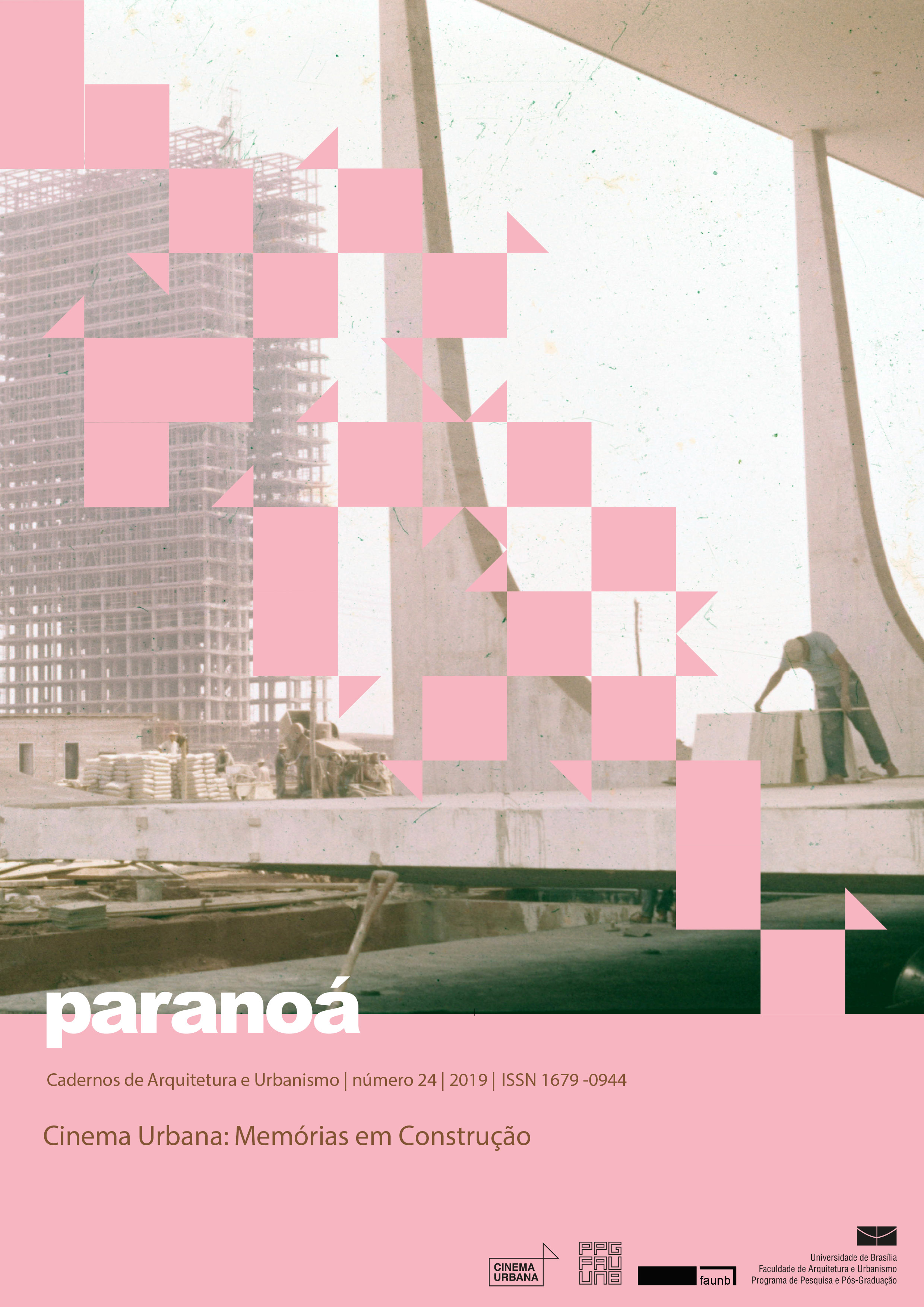Displacement and belonging
the place of passage in Rio Doce / CDU
DOI:
https://doi.org/10.18830/issn.1679-0944.n24.2019.04Keywords:
Place of passage, Urban Space, Displacement, BelongingAbstract
This paper deals with the film representation of belonging in space within the images built by Pernambuco’s contemporary cinema to discuss about the notion of place of passage and the subjective implications related to the subject’s identity in its relation to a certain urban space. The place of passage is the one built in Pernambuco’s documentary film Rio Doce/CDU (2013), written and directed by Adelina Pontual. From the analysis of the moving images of and through urban space of two cities: Olinda and Recife, it will be considered that the filmed and projected spaces (in their cinematic and geographic senses) are wrapped in a cultural frame of the perception of lived and imagined space which enables new understandings about the notions of identity and belonging to a place. Here we consider the links between the urban images in the film, by the speech analysis, from the spatiality of place that is evidently culturally built, to establish a paradigm of understanding of the relationship between the moving images of urban space, the human experience in space, and the geographic imagination that constitutes itself from the representation of spatial experience and the identity of place.
Downloads
References
MORTIMER, J. Arquiteturas do Olhar. Belo Horizonte: C/Arte, 2017.
PASSOS, E.; KASTRUP, L. E. Pistas do Método da Cartografia: pesquisa-intervenção e produção de subjetividade. Porto Alegre: Editora Sulina, 2009.
SUPPIA, A. Cartografias para a Ficção Científica Mundial: cinema e literatura. São Paulo: Alameda, 2017.
SUPPIA, A. Cinema(s) Independente(s): Cartografias para um Fenômeno Audiovisual Global. Juiz de Fora: Editora UFJF, 2013.
Downloads
Published
How to Cite
Issue
Section
License
Autores que publicam nesta revista concordam com os seguintes termos:
- Autores mantém os direitos autorais e concedem à revista o direito de primeira publicação, com o trabalho simultaneamente licenciado sob a Licença Creative Commons Attribution que permite o compartilhamento do trabalho com reconhecimento da autoria e publicação inicial nesta revista. http://creativecommons.org/licenses/by/4.0
- Autores têm autorização para assumir contratos adicionais separadamente, para distribuição não-exclusiva da versão do trabalho publicada nesta revista (ex.: publicar em repositório institucional ou como capítulo de livro), com reconhecimento de autoria e publicação inicial nesta revista.
- Autores têm permissão e são estimulados a publicar e distribuir seu trabalho online (ex.: em repositórios institucionais ou na sua página pessoal) a qualquer ponto antes ou durante o processo editorial, já que isso pode gerar alterações produtivas, bem como aumentar o impacto e a citação do trabalho publicado (Veja O Efeito do Acesso Livre).















